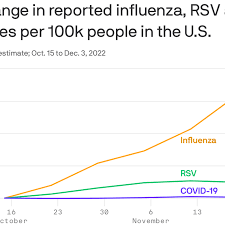Scientists say chronic pain 'slashed' by eating this specific diet

Scientists have found that a nutritious diet may be linked to reduced chronic pain severity. Chronic pain, suffered by more than a third of UK adults, is a condition describing pain that lasts longer than three months.
Often, there is no obvious and medication may not provide relief, making everyday life incredibly difficult. In their research, experts at the University of South Australia investigated the relationship between body fat, food and pain caused.
Data was gathered from adults signed up to the Whyalla Intergenerational Study of Health (WISH), conducted between February 2008 and July 2009. Interestingly, results showed that women who ate food recommended within the 'Australian Dietary Guidelines' experienced lower levels of body pain.
This was especially true for so-called 'core foods', such as vegetables, fruits, grains, dairy and lean meat. PhD researcher Sue Ward, who worked on the project, explained: "It’s common knowledge that eating well is good for your health and wellbeing. But knowing that simple changes to your diet could offset chronic pain, could be lifechanging.
"In our study, higher consumption of core foods – which are your vegetables, fruits, grains, lean meats, dairy and alternatives – was related to less pain, and this was regardless of body weight. This is important because being overweight or obese is a known risk factor for chronic pain.
"Knowing that food choices and the overall quality of a person’s diet will not only make a person healthier, but also help reduce their pain levels, is extremely valuable." Despite this, it's crucial to highlight that 'higher consumption of core foods' was not related to significantly less pain in men.
As a result, the team stressed that further research is required. "Women with better diets, had lower pain levels and better physical function. But this effect was much weaker for men," Ward added.
"It’s possible that the anti-inflammatory and antioxidant properties of the healthier core food groups is what reduces pain, but we can’t yet determine whether poorer diet quality leads to more pain, or if pain leads to eating a poorer quality diet.
"A healthy, nutritious diet brings multiple benefits for health, wellbeing, and pain management. And while personalised pain management strategies should be adopted, a healthy diet is an accessible, affordable, and effective way to manage and even reduce pain."


 Australia
Australia Argentina
Argentina  Austria
Austria  Brazil
Brazil  Canada
Canada  Germany
Germany  Ireland
Ireland  Italy
Italy  Malaysia
Malaysia  Mexico
Mexico  New Zealand
New Zealand  Poland
Poland  South Africa
South Africa  United Kingdom
United Kingdom  United States
United States 

































